Concept of Human Dignity in Islam
Right to Human Dignity In Islam
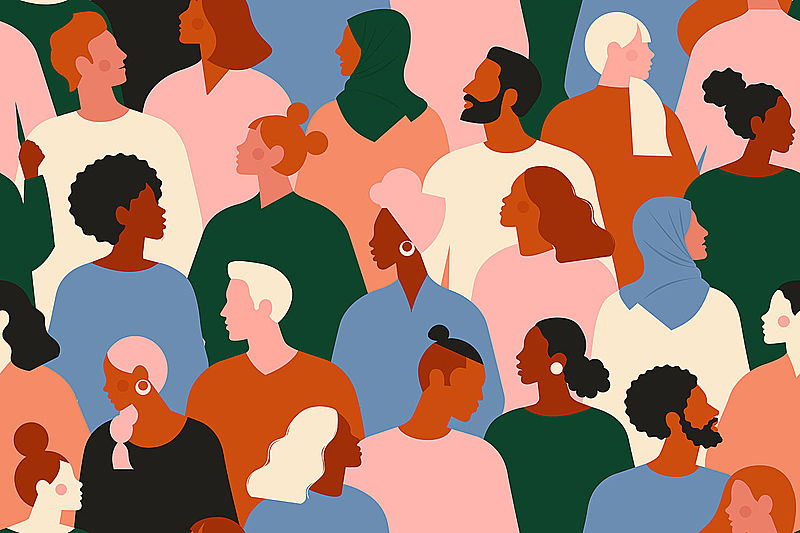
The concept of human dignity has long been deemed in Islam as the right of every person, regardless of who they are. By simply ‘being’, a person deserves to be respected, dignified, and to be given certain rights.
However, a lack of awareness and emphasis on this understanding has led to misperceptions in which people deem themselves better than others, be it because of their sex, race, religion, wealth, and other irrelevant factors.
Today, while there is heightened awareness on respecting each other’s rights, there is still an urgent need to counter the existing bigotry with a commonality that transcends barriers, which would be our humanity.
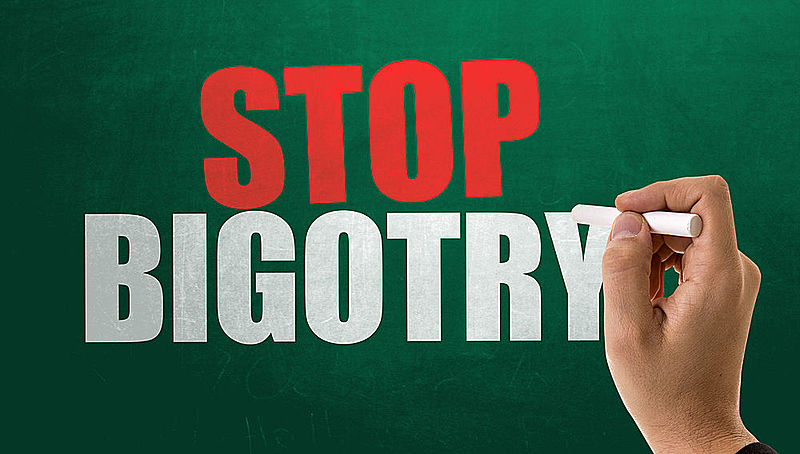
One of the reasons behind people’s mistreatment of others is due to their inability to acknowledge differences as if concerns that those who are different from them are seen as threats to their way of life and to their interests. Whatever the reasons are, mistreatment of others is never the answer. Instead, efforts should be poured into building positive ties that will mutually benefit all parties, such as holding dialogues to understand and build empathy with one another.
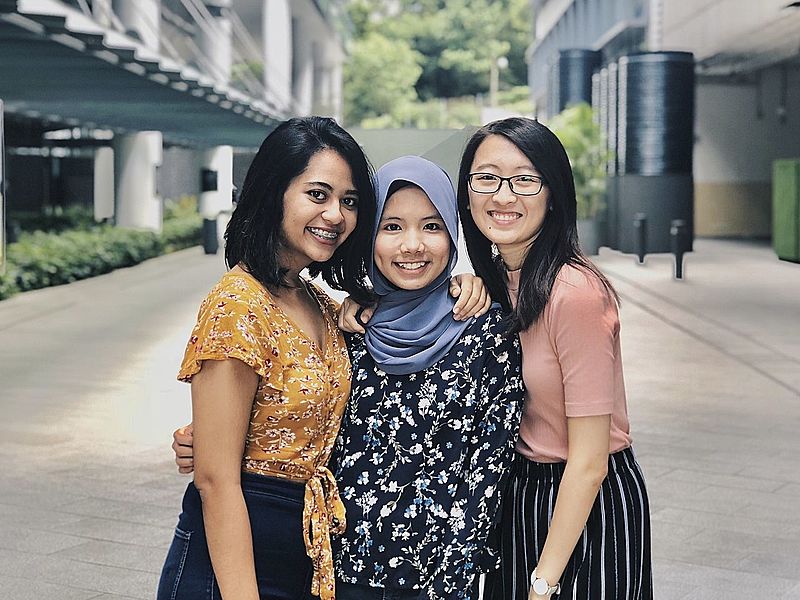
The decision to incorrectly focus on each other’s differences and act upon this irrational and myopic understanding is against the teachings of Islam. One of the ways we can correct these misperceptions is through the emphasis of what Islam teaches through the Quran and Hadiths about human dignity. Understanding alone is not enough as we must then lead through example, thus making a difference in this world, regardless of how small it is.
What Is Human Dignity
Human dignity is regarded as the recognition that human beings possess a special value intrinsic to their humanity, and as such are worthy of respect simply because they are human beings. An essential part of this concept is to look beyond the customary individual labels that might affect how a person is treated. The concept of human dignity is universal as it is emphasised in various religions throughout history, such as Christianity and Buddhism, to name a few.
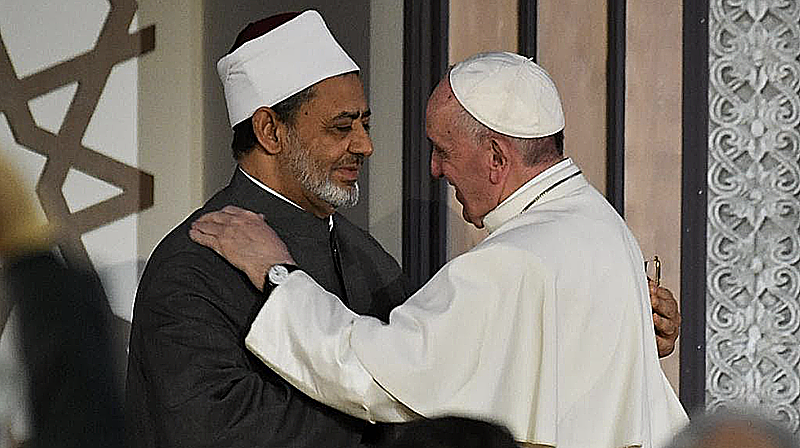
A failure to fully understand the importance of human dignity may lead to a lack of empathy and the rise of enmity among ourselves. Society’s progress may be hindered when we fail to recognise that each individual has a right that needs to be respected.
Islam on Human Dignity
Islam as a religion does not deny the natural instincts and emotions in a human being. It instead teaches us how to manage or overcome them. The need to feel belonged to a group, to socialise, to cooperate with one another, is ingrained in humanity.
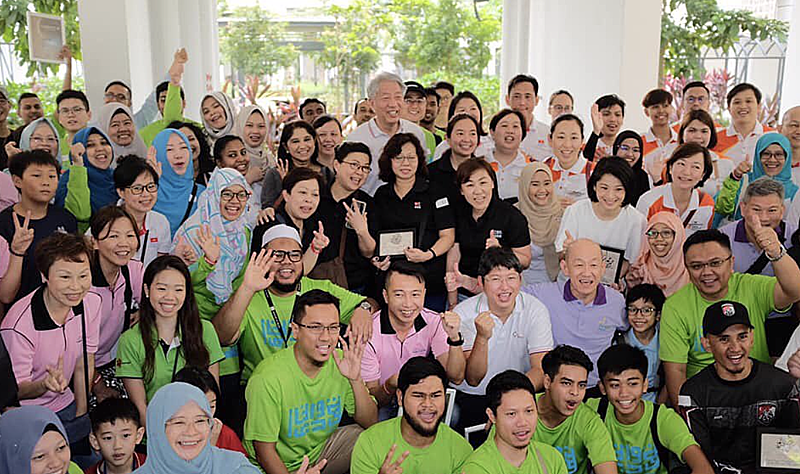
Source: Ustaz Khairul Anwar’s Instagram
While associating ourselves with people of similar backgrounds is an unavoidable part of human nature, it can impact negatively on society if left unchecked, producing an ‘us-versus-them’ mentality, leading to problematic stigmas and ideologies such as xenophobia, which is being prejudiced with people from other countries.
To overcome this, Islam emphasises on the commonality of human beings, which is our humanity. It is mentioned to the angels that there would be creatures created who will be vicegerents on earth, and bestowed upon them with honour.
In the Quran, Allah s.w.t. mentioned,
وَلَقَدْ كَرَّمْنَا بَنِي آدَمَ وَحَمَلْنَاهُمْ فِي الْبَرِّ وَالْبَحْرِ وَرَزَقْنَاهُم مِّنَ الطَّيِّبَاتِ وَفَضَّلْنَاهُمْ عَلَىٰ كَثِيرٍ مِّمَّنْ خَلَقْنَا تَفْضِيلًا
“And We have certainly honoured the children of Adam and carried them on the land and sea and provided for them of the good things and preferred them over much of what We have created, with [definite] preference.” (Surah Al-Isra, 17:70)
It is important to note that this honour is used with the phrase ‘descendants of Adam’, without association with one specific group, which signifies the oneness of humanity in the light of human dignity. It is not through any personal attributes that a person is honoured, but it is because of the fact that they are humans.
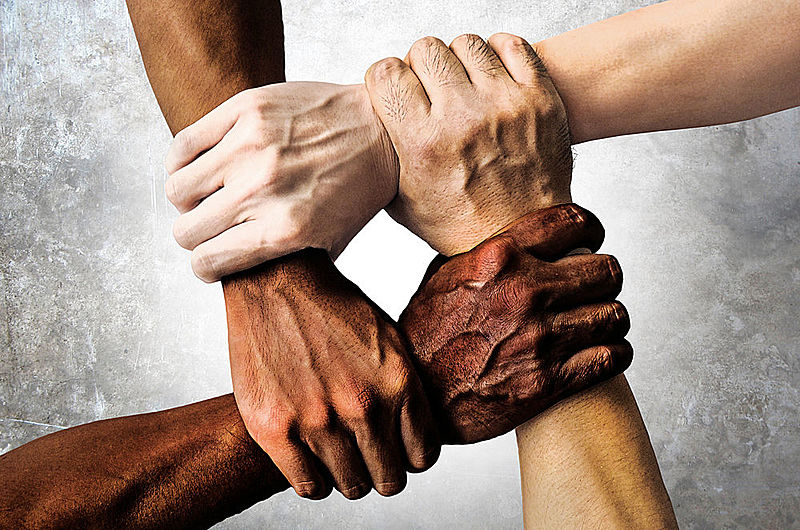
The concept of human dignity in Islam is seen in a treaty that the Prophet partook before his prophethood, which is the Hilf-Al-Fuhdul¸ which translates to the ‘League of the Virtuous’.
Written up after the mistreatment of a Yemeni merchant, the treaty promised to uphold justice for all who were oppressed in Mecca, regardless of their status and background. During his prophethood, the Prophet s.a.w. still acknowledged the validity and value of the treaty, saying it was ‘more beloved to me than a herd of red camels’ and ‘if I were called to it now in the time of Islam, I would respond.’
It is through this treaty that we see Islam following a set of principles and morals that are grounded in practicality and also protecting the rights and dignity of people.
An Antidote for Certain Poisons
Islam rejects any discrimination among human beings based on religion, race, language and nationality. Differences in either race or religion can never be used to validate the mistreatment of others. This mistaken understanding is against the teachings of Islam and contradicts what is practised by Prophet Muhammad s.a.w.
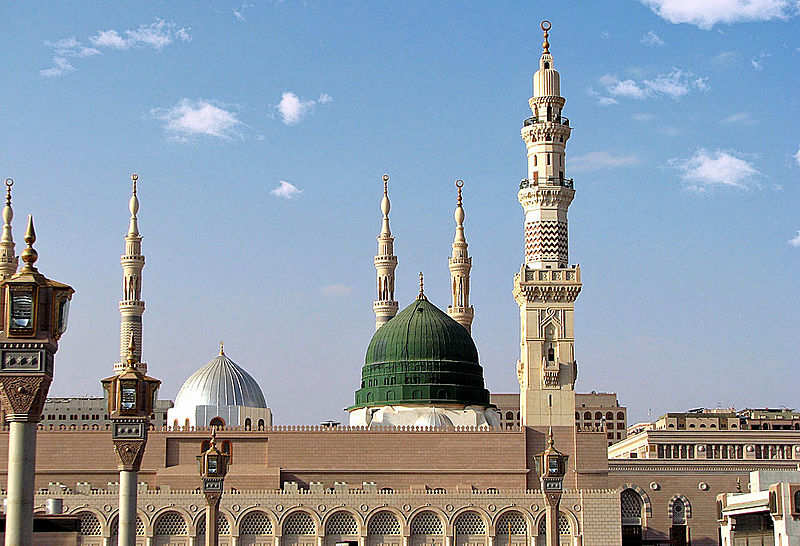
Often overlooked is the verse that is stated in the Quran which reveals the reason as to why humanity is created into ‘nations and tribes’, and that is so we may create bonds with each other.
Allah s.w.t mentioned,
يَا أَيُّهَا النَّاسُ إِنَّا خَلَقْنَاكُم مِّن ذَكَرٍ وَأُنثَىٰ وَجَعَلْنَاكُمْ شُعُوبًا وَقَبَائِلَ لِتَعَارَفُوا
"O humankind! We created you from a single (pair) of a male and a female, and made you into nations and tribes, that you may know each other (not that you may despise each other).”
(Surah Al-Hujurat, 49:13)
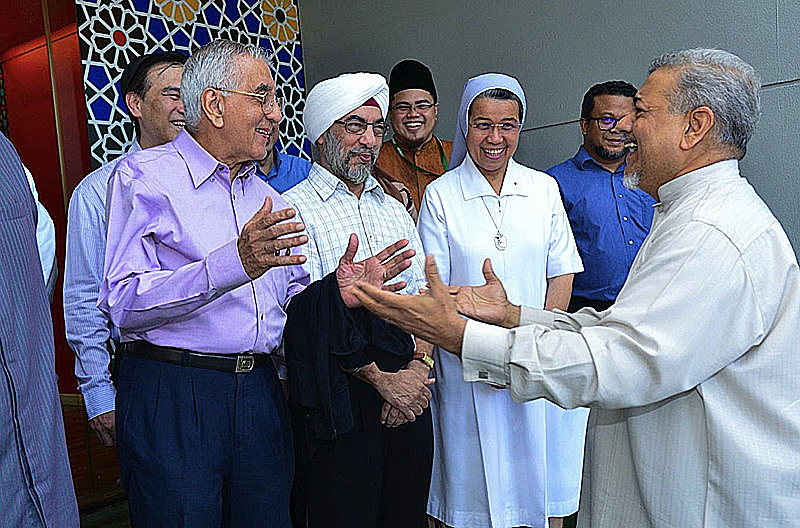
It is therefore against the intended purpose of the creation of tribes and races to bring strife and conflict against one another. It is telling that our Prophet Muhammad s.a.w. coexisted with people of different races and religion in his lifetime, created bonds with them and treated them with the utmost respect and dignity, be it in life or in death. Similarly, the Mufti of Singapore sent a touching letter to Bishop Terry on Holy Week.
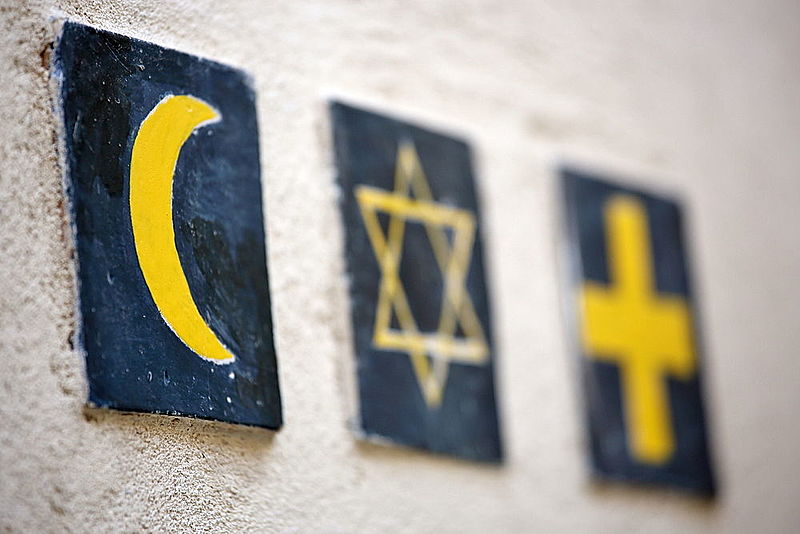
Qays ibn Sa’d reported: A funeral passed by the Messenger of Allah, peace and blessings be upon him, and he stood up. It was said to him, “It is a Jew.” The Prophet said, “Was he not a soul?”
Acquired Dignity and Inherent Dignity
Extremists and radicals even believe that non-believers are undeserving of human dignity because of their lack of faith. They have taken Quranic verses without learning of their context to support their actions.
However, it is clear that mentioned in the Quran are concepts of dignity that are placed in different contexts. This is where certain groups are mistaken into thinking dignity is reserved only for Muslims, that non-Muslims are undeserving of it and therefore, it is permissible to segregate from them or mistreat them.
Mentioned in the Quran is a concept of dignity that scholars call ‘inherent dignity’ (al-karamah al-muta’asilah), which is gifted to all of mankind, never to be lost or taken away from a human regardless of his actions, religion, orientation, status. Even a criminal is entitled to dignified treatment, as punishment shouldn’t be intended to humiliate but to reform and discipline a person. Thus, every person deserves to be respected and dignified as a fellow human being, and also to be granted certain rights.
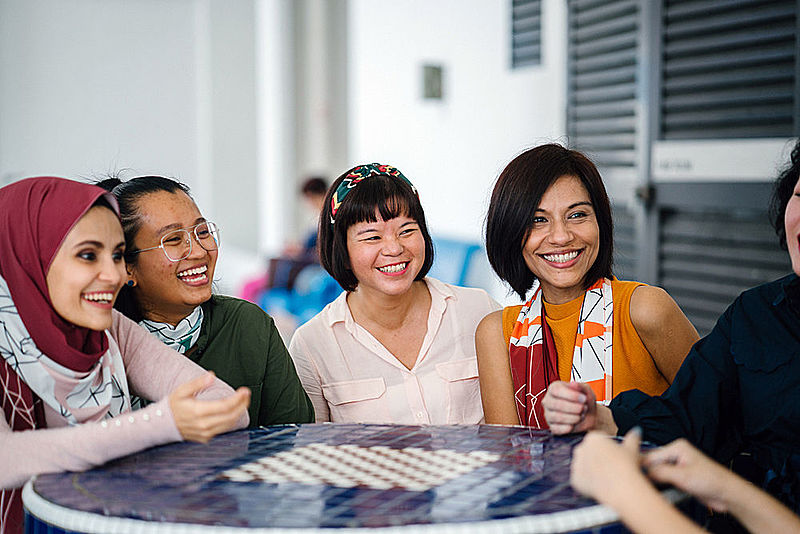
As mentioned in the Quran,
لَّا يَنْهَاكُمُ اللَّهُ عَنِ الَّذِينَ لَمْ يُقَاتِلُوكُمْ فِي الدِّينِ وَلَمْ يُخْرِجُوكُم مِّن دِيَارِكُمْ أَن تَبَرُّوهُمْ وَتُقْسِطُوا إِلَيْهِمْ ۚ إِنَّ اللَّهَ يُحِبُّ الْمُقْسِطِينَ
"Allah does not forbid you from those who do not fight you because of religion and do not expel you from your homes - from being righteous toward them and acting justly toward them. Indeed, Allah loves those who act justly."
(Surah Al-Mumtahanah, 60:8)
To make the world a better place, we first have to start with ourselves, by imbuing ourselves with the correct belief and understanding, before showing it through our words and actions. It is imperative that as Muslims, we treat everyone around us with respect and fairness, following not only the teachings of our religion through, but also the example set upon us by our Prophet Muhammad s.a.w.

